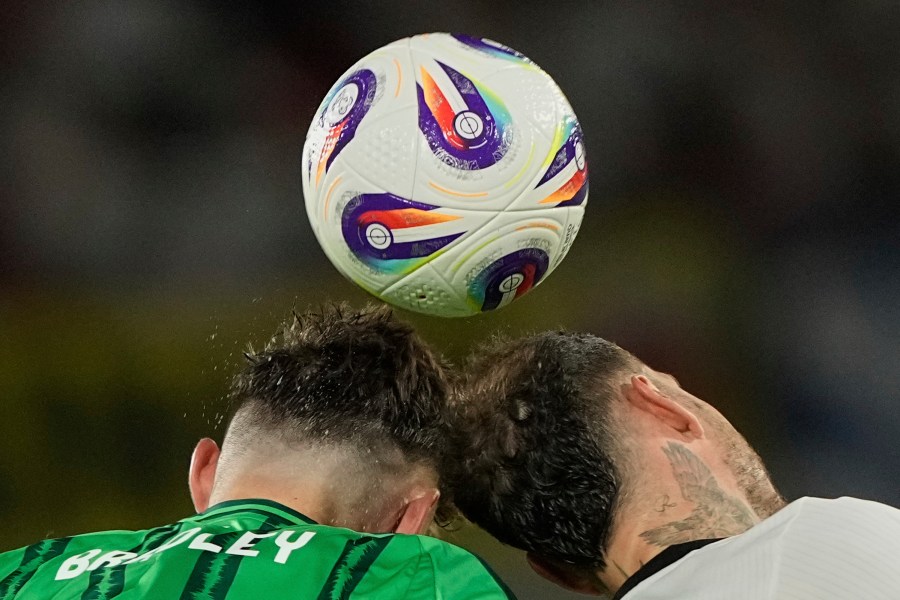Trump’s talk of moving World Cup games is dangerous, delusional

Every host city for the 2026 FIFA World Cup has already been through a gauntlet of planning as exhausting as it has been meticulous. From federal security briefings to counterterrorism coordination, insurance coverage to stadium retrofitting, fan-zone medical stations to multi-agency evacuation plans, every single host city has spent years preparing for the big moment.
So when President Trump told reporters he would consider moving matches away from cities he deems “even a little bit dangerous,” the suggestion may have sounded, on its surface, like an appeal to safety. In reality, nothing could be more unsafe — or more legally perilous — than pulling matches away from those carefully vetted sites and dropping them into new locations.
Safety in an event as massive as the World Cup is not a static label you can apply to a city with a Sharpie. When FIFA and local organizing committees designate a host city, they aren’t making blind guesses; they are relying on assessments by the Department of Homeland Security, the FBI, local and state police, emergency management agencies, international security experts, and layers of private contractors. If a city is certified as fit to host, it has already demonstrated that it can manage risks of terrorism, crowd control, public health and infrastructure stress.
To casually declare that a city is “too dangerous” undermines not only that work but the very idea of what safety means. It replaces evidence-based, professionally validated protocols with a single politician’s perception. And in the context of an event expecting millions of global visitors, perception cannot replace planning. In short, it is a reliability nightmare to move a match from a city that has spent years investing in safety to one that has not.
First, there’s contractual liability. FIFA, sponsors, broadcasters and host cities all have binding agreements that depend on matches taking place where promised. To break those deals is to invite breach-of-contract claims that could stretch into the billions.
Second, there is tort liability. If a match is suddenly relocated, the new site will not have the same level of preparedness. That creates an increased risk of injury or worse. Should something happen — a crowd stampede, a medical emergency, an attack — plaintiffs will point directly to the decision to relocate as negligent.
Third. there is insurance liability. Insurers have underwritten these events on the basis of detailed risk assessments. Abruptly shifting a venue nullifies those assessments, leaving organizers exposed. Try finding an underwriter willing to assume the risk of a stadium that wasn’t in the original plan. It’s not going to happen.
Every World Cup host city is already scrutinized through the lens of “what’s the worst thing that could happen?” Planners then build backwards from that nightmare scenario.
Could the subway system handle a sudden evacuation? Do local hospitals have surge capacity? Are digital communications hardened against cyberattack? Where will emergency vehicles stage if roads are blocked by tens of thousands of fans?
This isn’t politics — it’s logistics, it’s law, and it’s liability management.
And we cannot ignore that the World Cup is not just another domestic event. It is an international contract between the U.S. and the world. Every ticket holder from Europe, South America, Africa or Asia has already booked travel based on the official host schedule. Moving games is not just disruptive — it could be seen as a breach of international obligation.
Diplomatic fallout would follow. Foreign governments will demand explanations. FIFA, already beleaguered by years of corruption scandals, will face questions about whether the U.S. can be trusted to honor commitments. The reputational hit to American law and order — the very thing Trump claims to be protecting — would be immense.
Fans arriving in a city unprepared for World Cup-scale crowds will face higher risks of crime, accidents and inadequate medical response. Emergency personnel cannot improvise overnight. Safety protocols are built, tested and revised over years, not days.
Theatrics may work on the campaign trail, but public safety cannot be managed like a rally. And the law recognizes that difference. Courts are unsparing when they evaluate foreseeability — the principle that if you could have anticipated the risk, you are responsible for failing to prevent it. Nothing is more foreseeable than the chaos of relocating a match at the last minute.
The 2026 World Cup is a once-in-a-generation opportunity for the U.S. to showcase not only its love of the game but also its ability to safely welcome the world. That safety is the product of painstaking legal agreements, logistical rehearsals and risk assessments. So we need to make sure planning is not discarded, because liability exposure will rise.
The safest choice is the one already made: keep the matches where they are. Honor the years of preparation. Trust the professionals who have built the protocols. Because if we want to protect fans, players and the nation’s reputation, the real danger is not in our host cities. The real danger is in moving the games at all.
Michael J. Epstein is a trial lawyer and managing partner of The Epstein Law Firm, P.A., based in New Jersey. Widely recognized as a legal commentator on risk, liability and safety in global sporting events, he has written extensively on the legal and logistical challenges surrounding the 2026 FIFA World Cup.